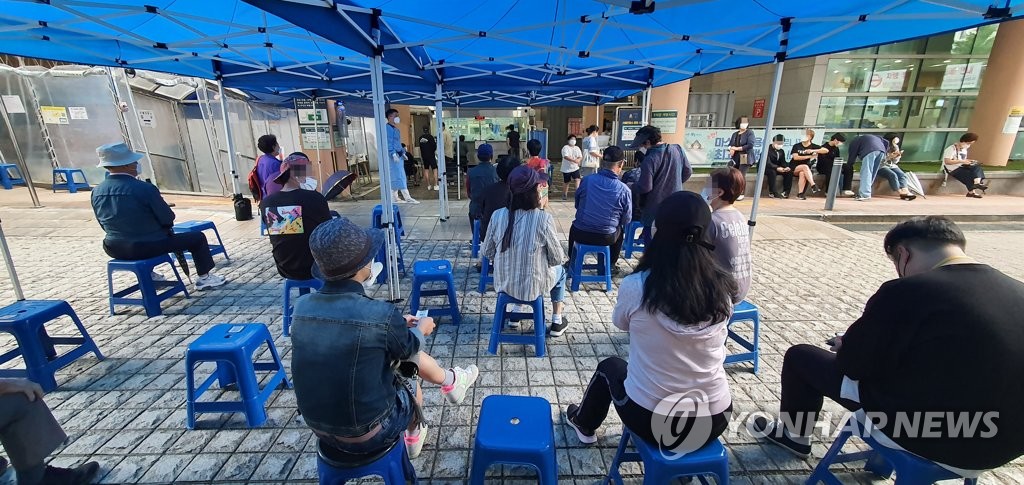SEOUL, Oct 04 (Yonhap) – Additional cases of the novel coronavirus (Covid-19) fell below 2,000 for the first time since September 23 (1,715 cases), due to the decrease in screening tests during the long weekend, while health authorities are still on alert about the spread of the virus after the long weekend.
—
The country added 1,673 new contaminations, including 1,653 local, bringing the toll to 319,777, according to the Korea Disease Control and Prevention Agency (KDCA).
—
The figure for Monday marks a drop from the 2,085 infections recorded on Sunday and 2,248 on Saturday. The drop is largely attributed to the lower number of tests carried out over the weekend. Daily transmissions have remained above 2,000 since September 26.
—
The country added six more deaths from Covid-19, bringing the death toll to 2,513. South Korea is battling a fourth epidemic wave, and the number of daily cases has exceeded 1,000 for about three months.
—
The KDCA reported a further jump in the number of infections following the Chuseok harvest festival holiday last month, with daily cases reaching a record high of 3,271 on September 25.
—
Health authorities remain on the alert for a resurgence of new cases as the two long weekends are expected to encourage more people to move. National Foundation Day (October 3) as well as the promulgation day of Hangeul, the Korean alphabet (October 9), will feature three-day weekends this year, with the government designating a compensatory day for all national holidays falling on weekends.
—
Health officials said the reproduction rate rose to 1.2 last week, the highest figure since the third week of July, indicating that a person with Covid-19 transmits the virus to at least one person. A number above 1 means the virus is spreading at a rapid rate.
—
The government decided last Friday to extend social distancing measures by two weeks, which will take effect on Monday.
—
As of July 12, the Seoul metropolitan area, home to half of the country’s 52 million people, has been under Level 4 antivirus measures, which include restricting business activities and a ban on private gatherings of three people. or more after 6 p.m., or six or more with at least four fully vaccinated people.
—
Against the backdrop of a prolonged pandemic, the government plans to gradually enter a phase of “living with the Covid”, from November, in which any contamination is treated as an infectious respiratory disease such as the seasonal flu, with the application of relaxed social distancing measures.
—
Since Seoul began its inoculation campaign on February 26, 39.7 million people, or 77.3% of the population, have received their first dose of Covid-19 vaccine, KDCA said. The number of people fully vaccinated was 27.02 million, or 52.6%.
—
Among the local cases, Seoul has reported 570 new cases, and Gyeonggi Province has identified 530. Daegu, in the southeast of the country, has reported 67 additional transmissions. The number of new infections reported in the Seoul metropolitan area stood at 1,218, representing 73.7% of the total. Imported cases amounted to 20, bringing the total to 14,545.
—
The number of patients with severe symptoms reached 348, up from 346 the day before, the KDCA said. The toll of those released from quarantine after fully recovering was 282,669, or 3,822 more in a day.
—

